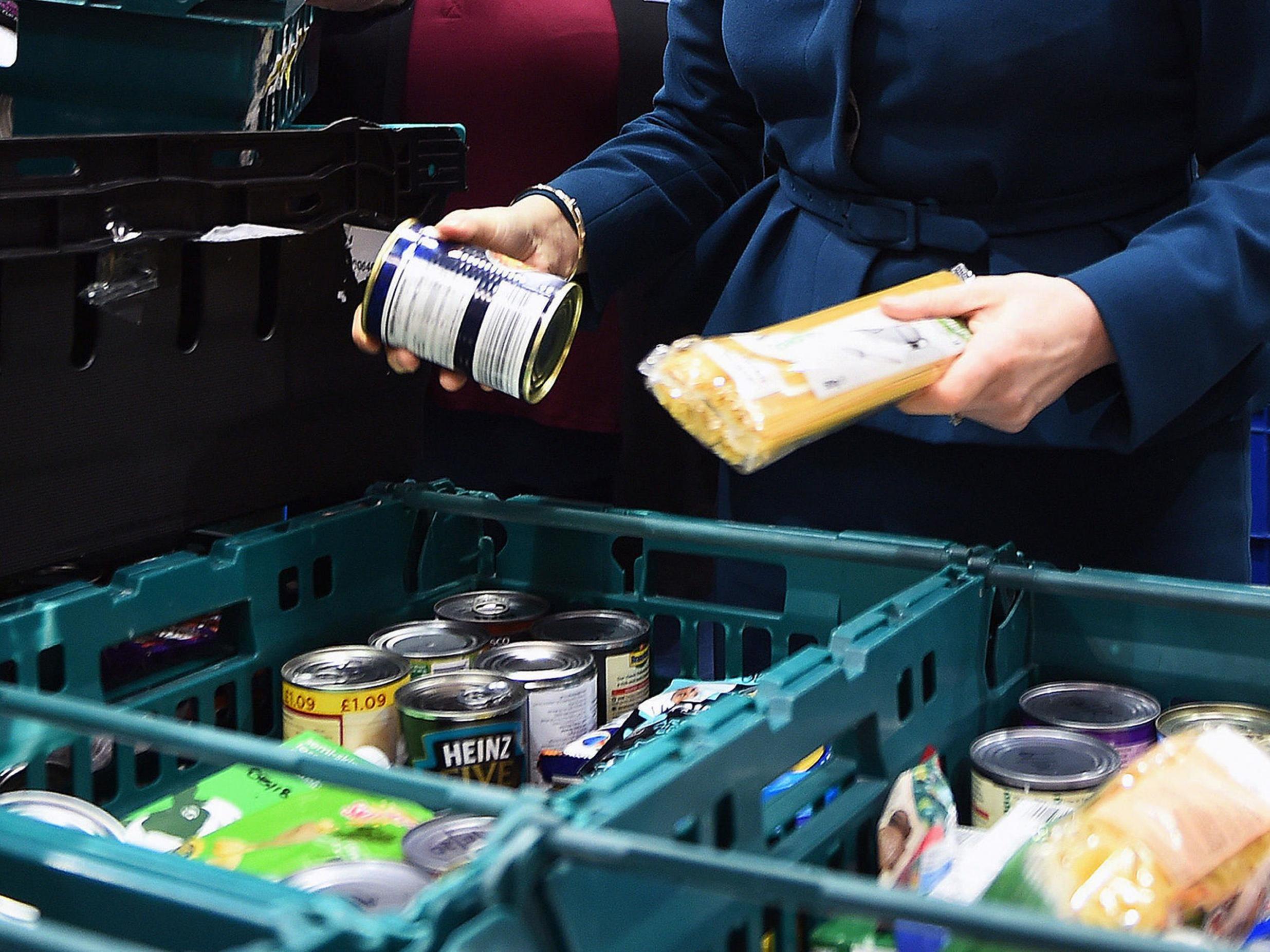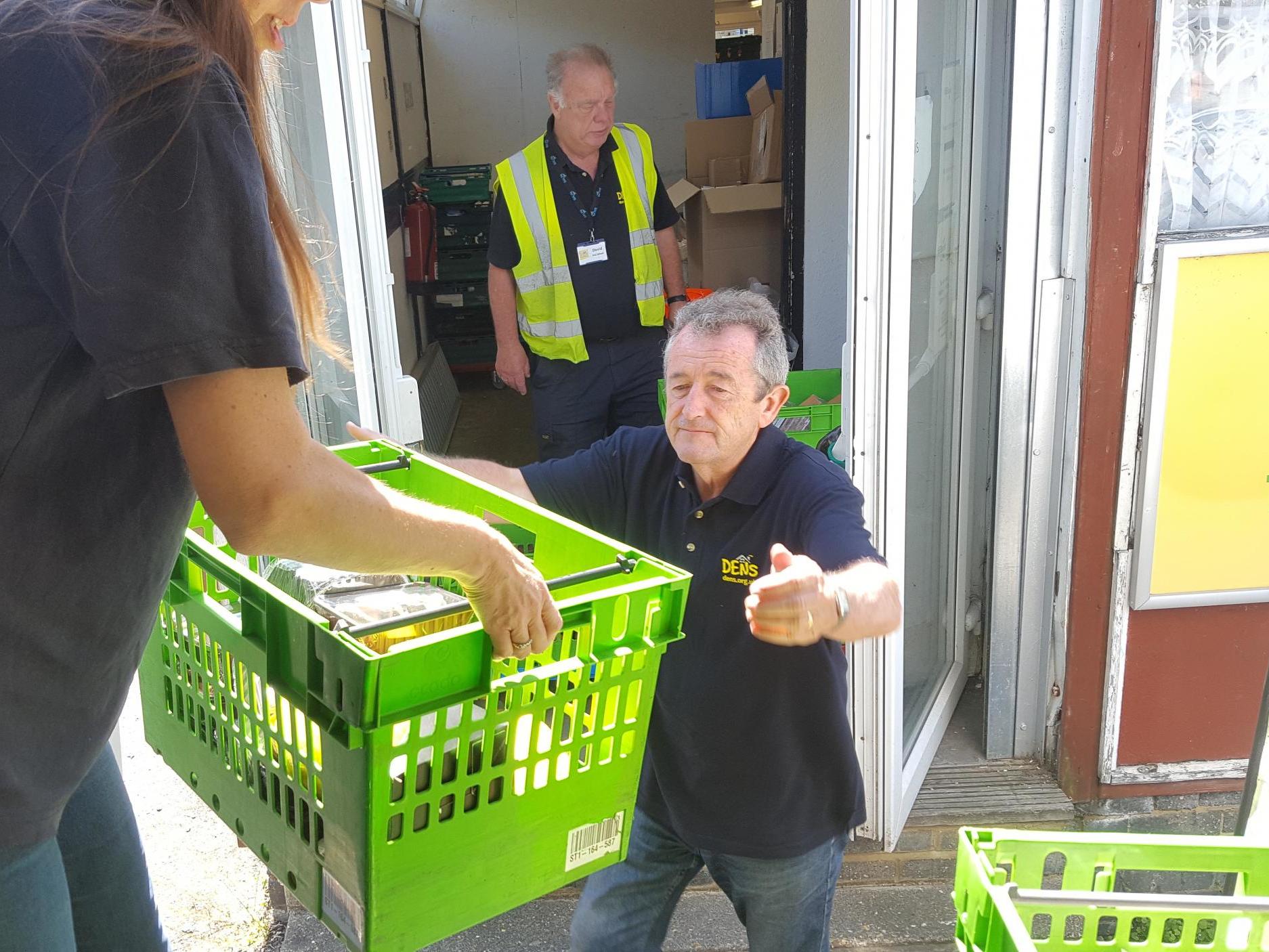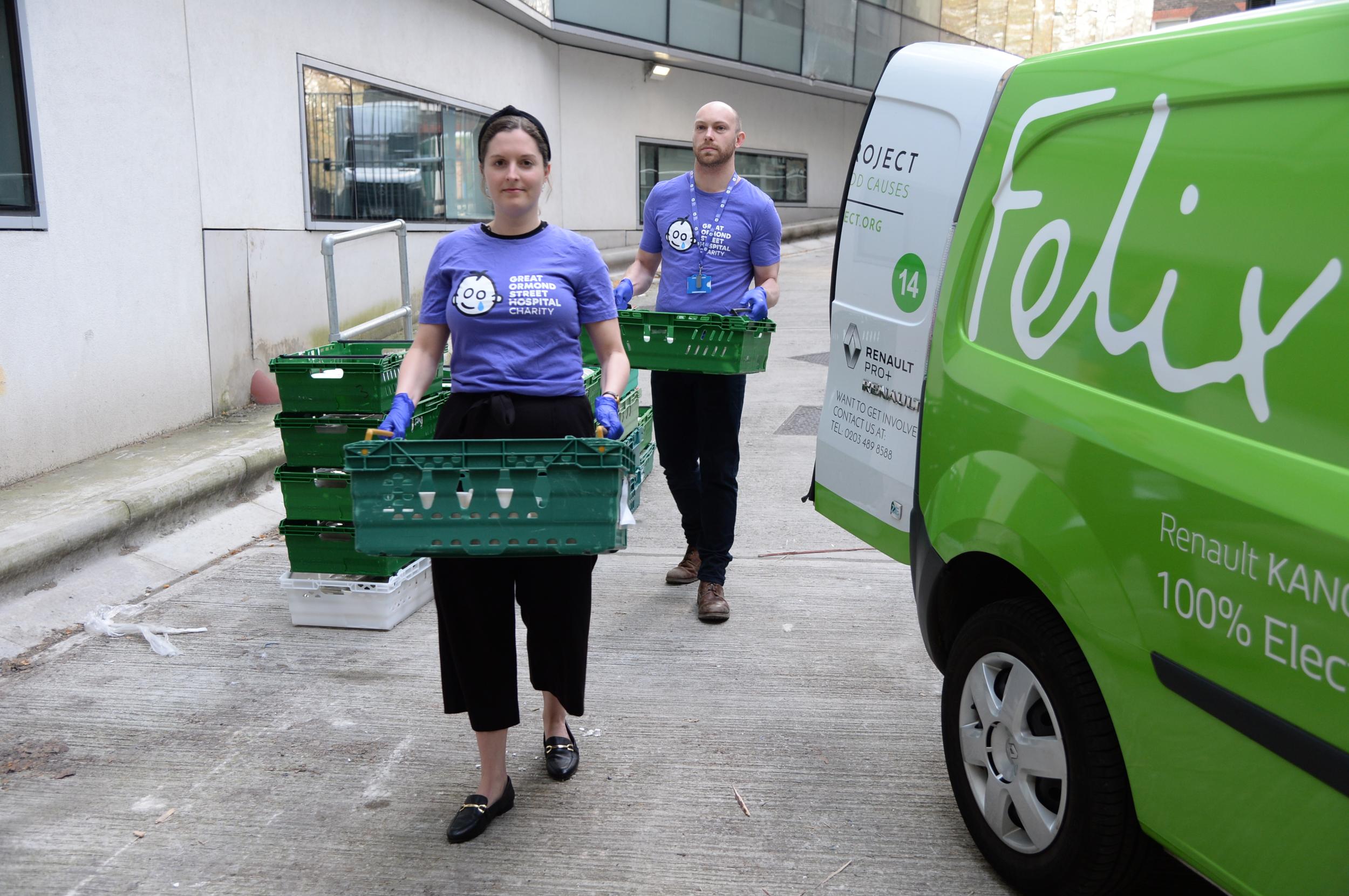Help the Hungry: Food banks move towards home deliveries amid struggle to keep doors open
‘You just have to find a different way of doing things,’ says food bank manager in Nottinghamshire – as new poll reveals scale of UK hunger crisis
Your support helps us to tell the story
From reproductive rights to climate change to Big Tech, The Independent is on the ground when the story is developing. Whether it's investigating the financials of Elon Musk's pro-Trump PAC or producing our latest documentary, 'The A Word', which shines a light on the American women fighting for reproductive rights, we know how important it is to parse out the facts from the messaging.
At such a critical moment in US history, we need reporters on the ground. Your donation allows us to keep sending journalists to speak to both sides of the story.
The Independent is trusted by Americans across the entire political spectrum. And unlike many other quality news outlets, we choose not to lock Americans out of our reporting and analysis with paywalls. We believe quality journalism should be available to everyone, paid for by those who can afford it.
Your support makes all the difference.Food banks across the UK are struggling to stay open as the coronavirus outbreak continues to cause a sharp decline in volunteers and a shortage of food donations.
It comes as a new survey revealed the scale of the hunger crisis facing Britain. Some 1.5 million people reported not eating for a whole day during the first three weeks of lockdown, according to a YouGov poll for The Food Foundation.
The Independent’s Help The Hungry campaign has been supporting work going on across the country to ensure that everyone has enough to eat during the outbreak and is backed by figures such as London mayor Sadiq Khan, Labour MP Jess Phillips and TV cook Nigella Lawson.
While several food banks have told us they have been forced to close their doors, many of them are attempting to switch gears and move into the home delivery of emergency food packages.
Bassetlaw Food Bank in Nottinghamshire was forced to “temporarily suspend” normal operations at the beginning of April, after it lost more than two-thirds of its mainly older volunteers who are having to self-isolate or follow NHS shielding guidance.
Administrator Mark Bagguley is part of a skeleton team now working with Bassetlaw Council Voluntary Service (BCVS) to make sure the most vulnerable people in the area get food parcels dropped at their door.
“You just have to find a different way of doing things,” he said. “We’re trying to work others as best we can. It’s very difficult to say whether the local need is being met, now that everything has been thrown on its head. You just have to help as many people as you can.”
Despite food donations left in supermarket collection points “dwindling significantly”, Mr Bagguley is making sure the produce gets taken to the BCVS’s central hub, where drivers deliver to people struggling with job losses, cuts in income or difficultly getting outside for health reasons.
The Welcome Centre, an independent food bank in Huddersfield, has lost 50 per cent of its volunteers since the lockdown began. Yet demand for help has roughly doubled in the past few weeks. Kirklees Council has sent two members of full-time staff to help the charity carry on by making home deliveries across the West Yorkshire town.

“We normally help about 300 people in a month,” said Emma Greenough, one of The Welcome Centre’s managers. “It’s likely we’re helping around 600 people at the moment – although it’s guesswork at the moment because things are changing so fast.
“I think the problems are bound to get worse,” Ms Greenough added. “There’s a lot of people who have never been in trouble financially before – it’s upsetting for them, because they just didn’t think this could happen to them.
“Some were on zero-hours contracts, some were self-employed – and now they suddenly have no income at all. If the government could suspend the five-week wait for universal credit, it would be a big help to people.”
Both the Trussell Trust, Britain’s largest network of food banks, and the Independent Food Aid Network (IFAN) are calling on the Department for Work and Pension to end the five week-wait on new claimants receiving their first universal credit payment.
“Unless the government gets a grip on the problem of [declining] income, the level of need will simply overwhelm an already fragile system,” said Sabine Goodwin, coordinator at IFAN.
Ms Goodwin said some of the independent food banks that closed a few weeks ago have already been able to re-emerge in a different form. “At the beginning of the coronavirus outbreak at least 12 of our member organisations closed. Since then, three of them have reopened because they have been able to adapt and put new processes in place.”

The DENS Food Bank in Hemel Hempstead, part of the Trussell Trust network, is relying on extra help so it can continue to operate. Demand for food parcels has gone up 75 per cent in the past few weeks, at a time the food bank is struggling with a drop in volunteers. It has forged an alliance with another local charity called the South Hill Centre, allowing volunteer drivers to make home deliveries to people asking for help.
“A lot of people have seen their income drop and they don’t have savings to cover them,” said Wendy Lewington, DENS Food Bank’s CEO. “For the self-employed, the government help that might be there in a couple of months isn’t there immediately so they’re struggling to afford the basics.”
Both the Welcome Centre and DENS Decorum Food Bank are looking for financial donations and non-perishable items such as UHT milk, soups, tinned meat and fish – proving harder for many food banks to buy in bulk at the supermarkets.

Despite the difficulties faced by small, local food banks, some of the larger food surplus charities – rescuing unwanted or short-dated stock from restaurants, retailers and manufacturers – are stepping up to fill some of the gaps.
The Independent’s Help The Hungry campaign is supporting the work of our key partner The Felix Project – which has teamed with two other large organisations in London to forge the London Food Alliance.
The London Food Alliance is now coordinating with all 32 London boroughs to make sure the new, council-run community hubs are well-stocked with supplies, and also providing meals for NHS staff.
The Independent is also encouraging readers to help groups that are trying to feed the hungry across the country – find out how you can help here. Follow this link to donate to our campaign in London in partnership with the Evening Standard.

Join our commenting forum
Join thought-provoking conversations, follow other Independent readers and see their replies
Comments